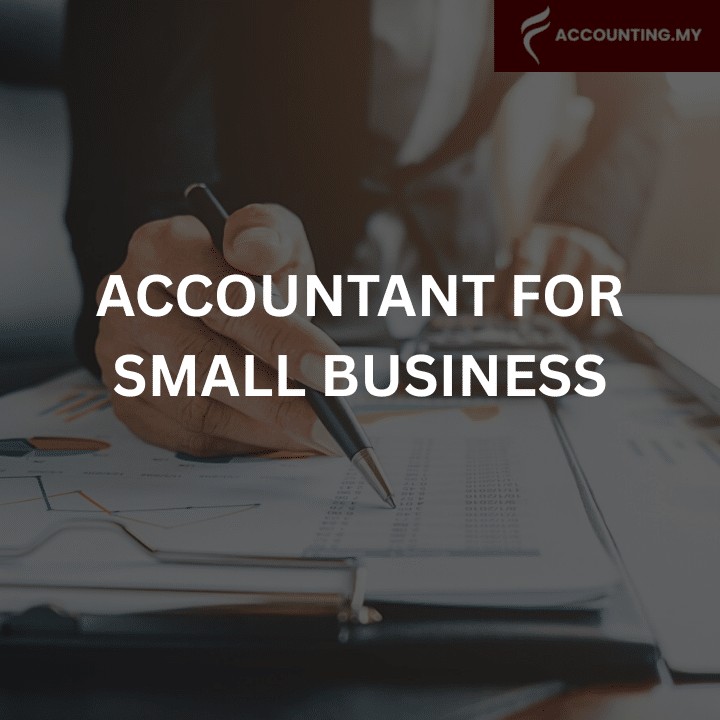Starting and running a business involves juggling many tasks. From making sure employees are paid on time, paying for the overhead cost, it all can get a little daunting to manage all of these expenses and finances.
This is where a professional accountant becomes an invaluable asset.
But how do you find the right one? What should you look for when hiring an accountant? All these are well and good questions, so without further adieu, let’s jump straight in.
What To Look For In An Accountant?
Before we get into the nitty-gritty, let’s start with a simple, but important question:
What exactly does your business need?
Are you after someone who can handle the everyday bookkeeping, or do you need a financial strategist to help you plan for growth? Perhaps you’re launching a new venture and require guidance in setting up your financial systems from scratch
Pinpointing these needs will make the entire search much more focused and fruitful as you are able to narrow down the sets of questions you would like to ask.
1. What Are Your Qualifications And Experience?
When you ask about qualifications, it’s not just about fancy letters after a name like the Big four. Look for professionals holding certifications from recognised bodies, like ACCA or MIA, these indicate a level of established expertise.
Also, consider their history. Has the accountant worked with businesses similar to yours, do they have experience working with small businesses before? Industry-specific knowledge can be a real asset, allowing them to anticipate challenges and opportunities unique to your sector.
2. What Services Do You Offer?
A good accountant does more than just balance the books. You need someone who can handle the full spectrum of financial tasks, from bookkeeping services and payroll, right through to strategic tax planning and detailed financial reporting.
Make a list of the services you require, and then check that the accountant’s offerings cover all of those bases. A complete service offering saves you from having to hire multiple financial professionals.
3. Are You Familiar With Malaysia’s Tax Laws And Regulations?
For any business operating within Malaysia, a solid grasp of local tax laws is non-negotiable. You want an accountant who can navigate the complexities of Malaysia’s tax requirements with ease and help your guide through it.
They should be able to provide accurate and timely advice to keep your business compliant and avoid any unwanted surprises from the tax authorities.
4. How Do You Stay Updated On Changes In Accounting And Tax Laws?
The world of finance and taxation is constantly changing. What is current today might change tomorrow. Therefore, ask your accountant how they maintain their knowledge or stay up to date with the latest financial regulations.
A reliable accountant will have a process for staying informed about any changes. This shows they are proactive and dedicated to providing you with the most current and accurate advice.
5. What Accounting Software Do You Use, And Are You Proficient In It?
Accounting today is heavily reliant on accounting software, gone are the days of ledgers and handwritten records. So it’s important to know what tools they use, and how familiar they are with those tools.
Also, consider your current software, and if it will integrate with the accountant’s. If not, can they work with the software you use, or can they help you find a more suitable solution? A smooth integration of accounting tools will save time and reduce the chances of errors.
6. What Financial Records Should I Keep?
Knowing what records to keep is fundamental for regulatory compliance and sound financial management. Ask the accountant for guidance on maintaining essential records, such as sales invoices, expense receipts, bank statements, payroll documents, and tax-related paperwork.
They should be able to provide clear advice on the specific record-keeping requirements for SMEs in Malaysia, guaranteeing you meet all legal obligations and have a clear financial overview.
7. What Is Your Fee Structure?
Money matters need to be spelled out clearly and immediately, especially for small businesses with limited resources.
Knowing how your accountant charges helps you budget effectively. You might find they bill hourly, work on a monthly retainer, or charge per project.
It is always wise to ask for a detailed breakdown of their fees and quotations to avoid unexpected costs suddenly rearing its head during mid consultation or service.
8. Can You Provide References From Past Clients?
Direct feedback from other business owners can offer valuable insights. Hearing about their experiences allows you to get a sense of the accountant’s working style, reliability, and effectiveness.
Speaking with those who have worked with them helps you form a solid picture of their capabilities. If the accountant is unwilling or unable to provide references, that is a huge red flag to consider.
A lack of referrals may signal a hesitance to share past performance, so read testimonials and online reviews carefully as these can offer a broader view of the accountant’s reputation and client satisfaction.
9. Do You Offer Business Advisory Services Beyond Basic Accounting?
A capable accountant can be more than just a number cruncher, though they definitely are good at it. They can act as a trusted advisor, offering strategic insights to help your business progress.
Always ask if they provide services like financial forecasting, budget planning, or advice on business growth strategies. Their knowledge could be a major asset to your business’s long-term success.
10. How Do You Handle Sensitive Financial Information And Data Security?
You will place a great deal of trust in your accountant, sharing details that are central to your business. Therefore, it is reasonable to expect strong data security measures when it comes to financial sensitivity.
Ask them to explain the steps they take to protect your information from unauthorized access. A detailed explanation will help you judge if their practices meet the security standards your business requires.
11. How Do You Handle Audits And What Support Do You Offer During That Process?
Audits can be a stressful time for any business, so it is important to know how your accountant will assist you. Ask them about their experience with audits, and what kind of support or services they can provide.
A professional accounting audit service can minimise disruption and help you navigate the process smoothly.
12. How Do You Help Small Businesses Manage Their Debt And Optimise Their Financial Structure?
Many small businesses carry some level of debt, and managing it effectively is key to financial stability. Staying afloat and having cashflow is the lifeblood of many small businesses.
Ask the accountant in question about their experience in helping businesses restructure debt, negotiate with creditors, or find cost-effective financing solutions. Explore how they can assist in optimising your capital structure to improve financial health.
Effective debt management can free up cash flow and improve your overall financial standing.
13. How Do You Handle Communication And Reporting?
Open channels of communication are key to a productive working relationship. You should know how they intend to keep you informed.
Ask about their preferred methods for providing updates, and how quickly they respond to your queries be it on the phone or WhatsApp.
Make sure you are clear on the frequency and format of their reports, so you can track your business’s financial health with confidence.
Conclusion On The Questions To Ask Your Accountant For Small Business
Equipped with these key questions, you can now confidently select an accountant who will be a true asset to your business.
But why waste time scurrying around the internet when you can access a team of experienced accounting professionals through us?
Accounting.my provides a suite of services designed to help small business owners, our industry-trained accountants are sure to answer any questions you throw at us.
Don’t let financial complexities hinder your business’s potential, contact us today!
Frequently Asked Questions About Accountant For Small Business
How Can An Accountant Help Streamline Bookkeeping Processes For Small Businesses?
The accountant should offer methods to automate tasks, integrate software, and organise records, resulting in time savings and reduced errors.
Can An Accountant Assist With Setting Up And Managing My Budget?
A capable accountant will help create realistic budgets, monitor performance, and provide insights to adjust spending for optimal financial health.
How Does An Accountant Handle Communication During Peak Tax Seasons Or Financial Audits?
The accountant’s communication plan during busy times should be clear, ensuring the business stays informed and supported throughout critical periods.
What Experience Does An Accountant Have With Securing Financing Or Loans For SMEs?
If a business anticipates needing financing, the accountant should have experience in preparing loan applications and a network of financial institutions.
Does An Accountant Offer Training Or Guidance On Using Accounting Software?
The accountant should provide support and training on the accounting software used by the business, maximising its benefits.
Does An Accountant Offer Advice On Business Expansion Or Restructuring?
If a business plans to grow or restructure, the accountant should have experience in providing strategic financial advice for such transition















